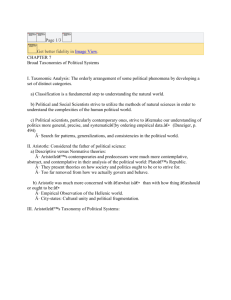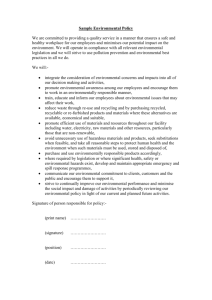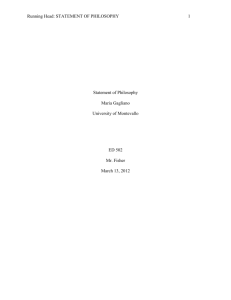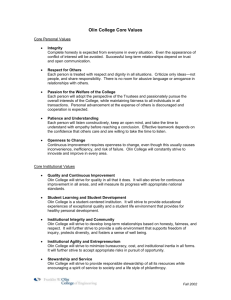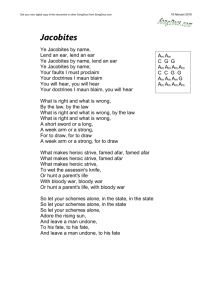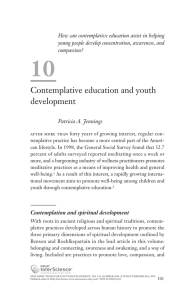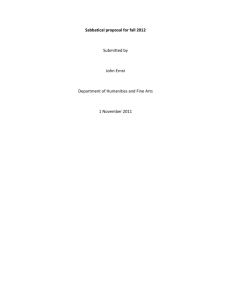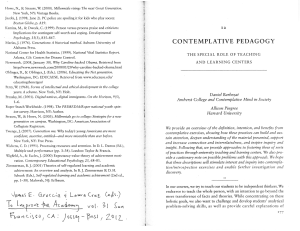Aristotle`s Taxonomies
advertisement
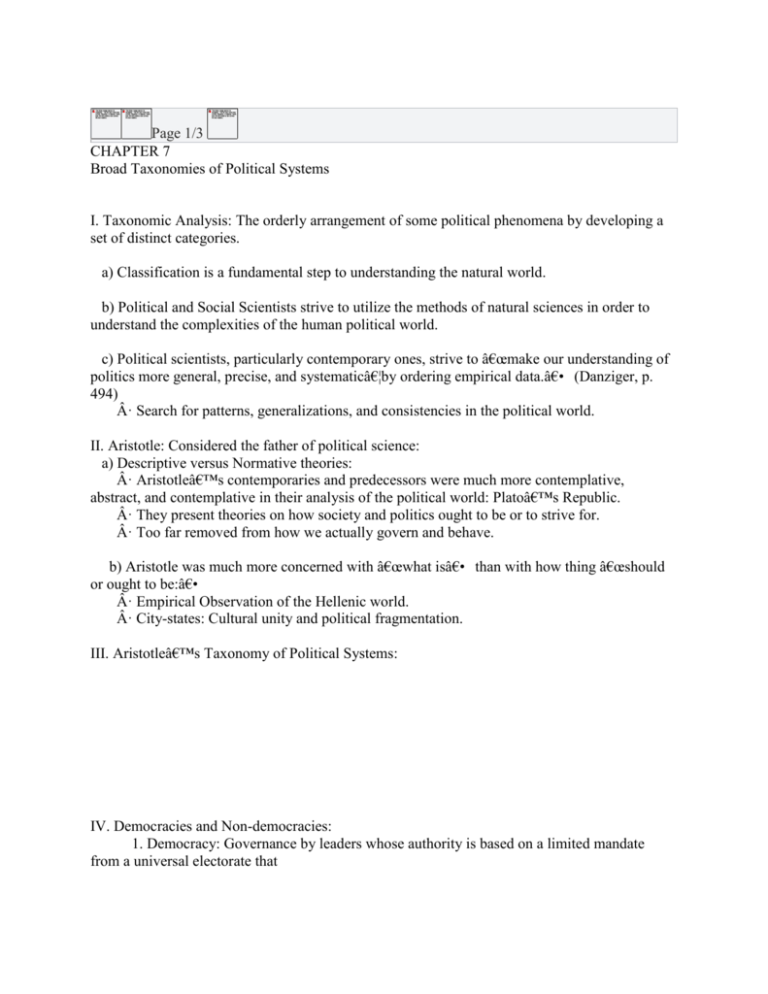
Page 1/3 CHAPTER 7 Broad Taxonomies of Political Systems I. Taxonomic Analysis: The orderly arrangement of some political phenomena by developing a set of distinct categories. a) Classification is a fundamental step to understanding the natural world. b) Political and Social Scientists strive to utilize the methods of natural sciences in order to understand the complexities of the human political world. c) Political scientists, particularly contemporary ones, strive to “make our understanding of politics more general, precise, and systematic…by ordering empirical data.― (Danziger, p. 494) · Search for patterns, generalizations, and consistencies in the political world. II. Aristotle: Considered the father of political science: a) Descriptive versus Normative theories: · Aristotle’s contemporaries and predecessors were much more contemplative, abstract, and contemplative in their analysis of the political world: Plato’s Republic. · They present theories on how society and politics ought to be or to strive for. · Too far removed from how we actually govern and behave. b) Aristotle was much more concerned with “what is― than with how thing “should or ought to be:― · Empirical Observation of the Hellenic world. · City-states: Cultural unity and political fragmentation. III. Aristotle’s Taxonomy of Political Systems: IV. Democracies and Non-democracies: 1. Democracy: Governance by leaders whose authority is based on a limited mandate from a universal electorate that Next Page Find Go to Page Thumbnail Index Image View Download a Copy Close
